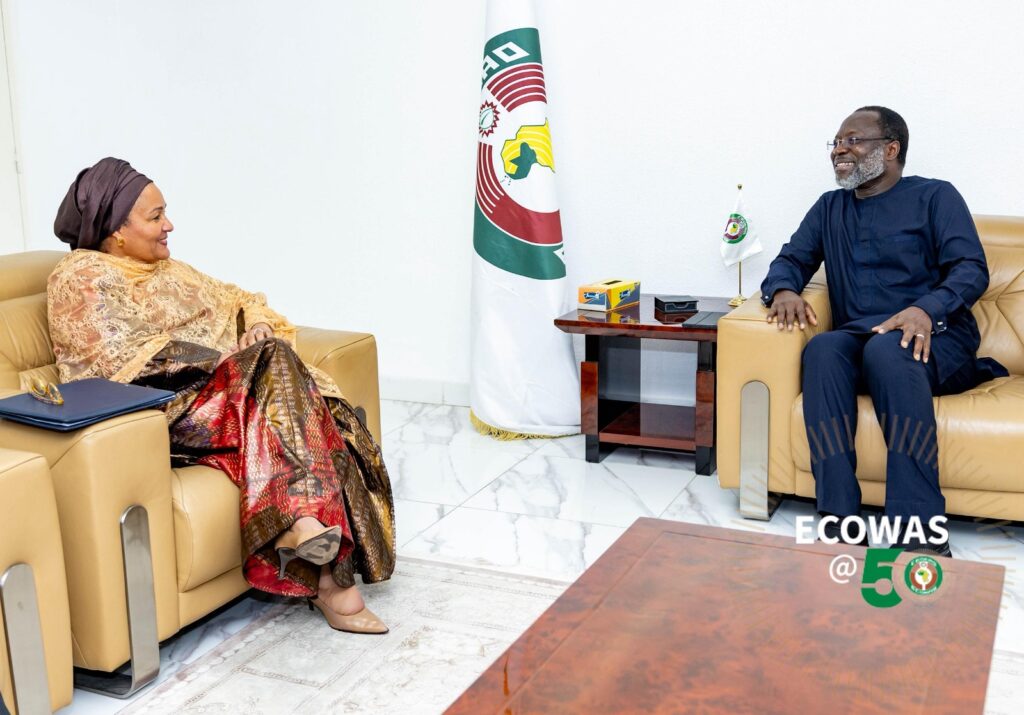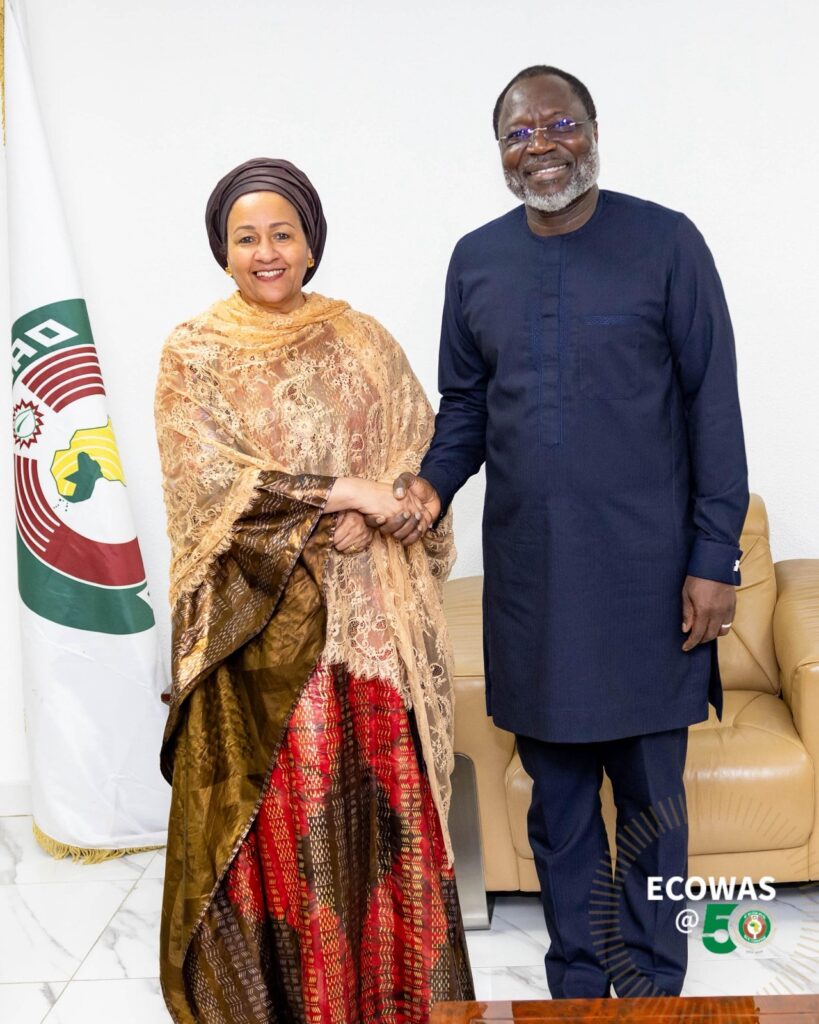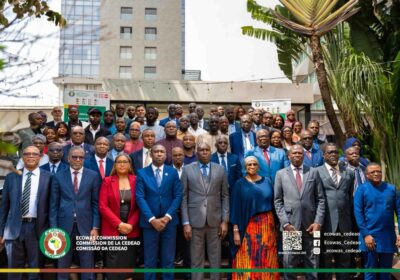UN Deputy Chief in a Strategic Talks with ECOWAS President Dr Omar Alieu Touray over Rising West African Instability.
By Raymond Enoch.
In a high-level diplomatic engagement that underscores growing international concern over the fragile state of West Africa, the Deputy Secretary-General of the United Nations, Mrs. Amina J. Mohammed, on Monday met with the President of the ECOWAS Commission, Dr. Omar Alieu Touray, at the Commission’s headquarters in Abuja.

The exclusive meeting, held behind closed doors, focused on intensifying collaboration between the United Nations and the Economic Community of West African States (ECOWAS) to confront the deepening security, political, and humanitarian crises sweeping across the region.
Discussions at the meeting were centred on the region’s deteriorating security environment—particularly the surge in terrorism, cross-border arms trafficking, and the growing influence of armed non-state actors. Both parties expressed grave concern over the erosion of peace and governance across several ECOWAS member states.

Mrs. Mohammed, a Nigerian with deep roots in development diplomacy, emphasized the UN’s readiness to support homegrown solutions that prioritize peace, resilience, and inclusive governance.
Dr. Touray, who has repeatedly called for a unified regional front against extremism and state fragility, welcomed the partnership, stating that ECOWAS is ready to work closely with the UN and other global partners to ensure stability in the sub-region.
The strategic meeting comes at a time when West Africa is reeling from multiple crises—ranging from military takeovers in countries like Niger, Mali, and Burkina Faso to escalating terrorist insurgencies in the Sahel and Lake Chad Basin.
Recent reports from humanitarian agencies suggest that over 10 million people in the region have been displaced due to conflict and insecurity, while economic instability continues to fuel youth unemployment and migration.
The presence of Mrs. Mohammed, one of the highest-ranking UN officials, in Abuja for this dialogue is widely seen as part of a broader international effort to reset multilateral engagement with ECOWAS amid shifting political dynamics and diminishing democratic gains.
Beyond security, the meeting also touched on long-term development cooperation between the UN and ECOWAS, including support for democratic governance, climate resilience, women’s empowerment, and youth inclusion.
Insiders suggest that a joint working group could soon be established to monitor progress and coordinate actions between both institutions.
As West Africa stands at a critical crossroads, Monday’s dialogue may mark the beginning of a reinvigorated push to restore peace and unlock sustainable development pathways across the region.
ECOWAS and the United Nations are expected to release a joint communique outlining next steps in the coming days.








